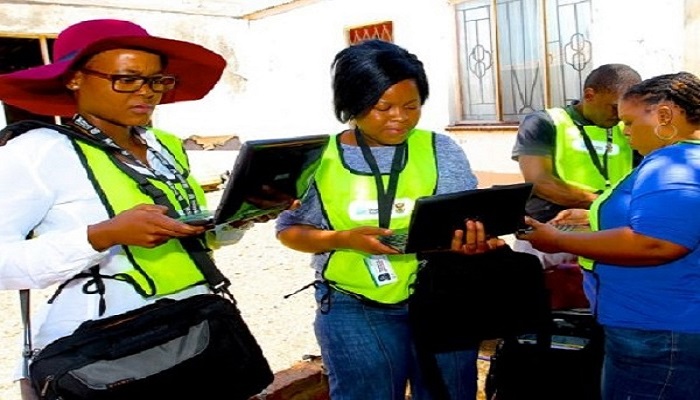Ghana is preparing for the 2021 Population and Housing Census (PHC) with data collection scheduled to start from June 28 to July 11, 2021.
The listing of structures began on Sunday, June 13, while the census night begins on Sunday, June 27, 2021. The 2021 PHC will be the first digital PHC in the country.
The 2021 PHC will provide important information to support evidence-based implementation of the national development agenda and support the tracking of achievements of the Sustainable Development Goals and Agenda 2063 of the African Union.
Questions to be asked during enumeration
During enumeration, a census official (enumerator) will visit each household and administer a questionnaire (collect some information) from the head of the household or any other adult in the household.
The enumerator will present their ID card on arrival. The interview to collect information must be conducted in the language that the respondent (household member) can understand.
It is important that everyone takes note of the Census Night and where you spent that night to answer the questions accurately.
All household heads should also make note of all the persons that slept in their household on the Census Night, both usual members of the household and any visitors.
Enumerators will visit all households or institutions and collect detailed information on the persons that slept there on Census Night.
It is important that all household heads are able to answer these questions on behalf of others in their absence. The information to be collected covers the following:
1. Travel history of household members who have migrated abroad
2. Socio-demographic characteristics (age, sex, education, ethnicity, religion etc.)
3. Literacy and education
4. Economic activity (employment status, job description, occupation, industry)
5. Difficulties in performing daily living activities (seeing, hearing, walking etc.)
6. Ownership and usage of ICT devices
7. Children born to women 12 years or over
8. Deaths of household members within the past 12 months
9. Housing conditions (construction materials of structure; water supply; asset ownership)
10. Sanitation (disposal of solid and liquid waste)
11. Source of water, lighting and cooking fuel
Latest Stories
-
Exciting offers draw crowds to Day 2 of Ecobank-JoyNews Habitat Fair in Tema
1 minute -
Celebrities, politicians pay glowing tribute to Ghanaian music icon Daddy Lumba
17 minutes -
Tributes pour in for highlife legend Daddy Lumba following his death
1 hour -
One stabbed to death at China City Mall in Kumasi
2 hours -
Auditor-General’s Report: We have normalised corruption, theft and scandals – Prof Abotsi
2 hours -
Highlife legend Daddy Lumba passes away at 60
2 hours -
Ghana’s Koogo Atia wins men’s 42km as Kenya’s Nancy Githaiga claim women’s title at 2025 Absa Black Star Marathon
2 hours -
Raphael Botsyo Nkegbe dominates wheelchair 42km race at Absa Black Star Marathon
3 hours -
Deloitte Africa unpacks Mid-Year Budget Review – Watch Yaw Lartey’s full analysis
3 hours -
Take politics out of anti-corruption institutions – Dr Oduro Osae
3 hours -
President Mahama hails Black Star Marathon as key to Ghana’s tourism growth
4 hours -
Ghanaian community in Côte d’Ivoire pushes for Chamber of Commerce to boost cross-border trade
4 hours -
The Joshua of Our Time: Why Dr Bryan Acheampong is the right leader to guide the NPP into its promised future
4 hours -
Public Financial Management Act must be enforced – Yaw Appiah Lartey on damning Auditor‑General’s findings
4 hours -
Absa Bank Ghana hosts Youth Festival to empower young entrepreneurs
4 hours

